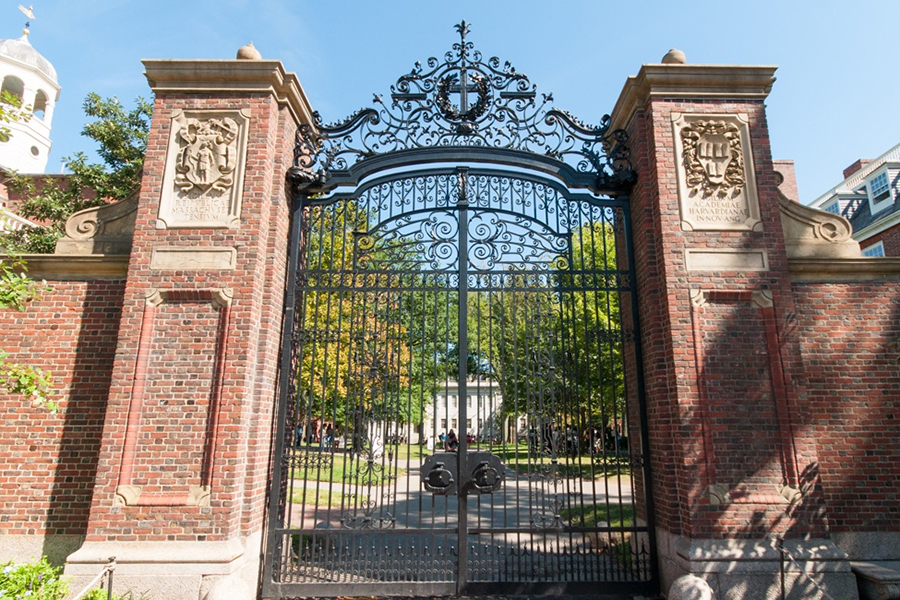Department of Justice Investigates Harvard’s Admissions Policies
Affirmative action could be on trial yet again.

Photo via iStock/marvinh
The line between illicit discrimination and affirmative action is grey and fuzzy and confusing. And the Department of Justice just isn’t quite sure what side of that line Harvard is on.
According to the Wall Street Journal, the school is being investigated for illegal admissions policies that put Asian American applicants at a disadvantage, and for failing to fully comply with the federal probe into the behavior. In conjunction with the latter allegation, the school could be slapped with a lawsuit forcing them to be more transparent. More broadly, though, the suit is just the latest chapter in the long-running conservative campaign against race-based affirmative action.
Diversity is a stated priority at Harvard, and the school has taken concrete steps to be inclusive. Harvard has consistently admitted incoming freshmen classes filled with students from all walks of life; they have a financial aid system so robust there is even money set aside so people from warm places can afford to buy winter coats; and they have—despite vocal backlash—taken to task social clubs in an effort to create an even playing field on campus. Not that that means the system for admission is fair. Tens of thousands of students vie for a piece of the Harvard pie each year—and there is evidence suggesting that it is more difficult for Asian applicants to get into elite colleges. While taking race into account when considering an applicant is not unconstitutional, the case is suggesting that Harvard’s admissions practices have crossed a line.
But this goes beyond just a few applicants to Harvard. Affirmative action has long been a target of the right and this is arguably just the latest salvo. Last year, the Supreme Court ruled against Abigail Fisher in her case challenging the University of Texas, upholding the legality of admissions policies that take race into account. Fisher was far from the first plaintiff to bring such a case. Back in 2003, the Supreme Court ruled that race is a legitimate factor in admissions, though it cannot be an overriding one. Edward Blum, who spearheaded Fisher’s losing lawsuit also leads the group taking on Harvard.
And yet, despite this repetitiveness, perhaps race-based admissions policies are indeed headed for a reckoning, for a few reasons. First, there’s evidence that they don’t work. The New York Times found that there are fewer black and Hispanic students on college campuses now than there were 35 years ago. Second, this case, as with others that Blum has championed, targets race, but ignores factors like socioeconomic status, leaving other cures available.
Income-based affirmative action has been discussed numerous times in the past few years. Of course race and income are often linked, but introducing a new standard to level the playing field in a more transparent way could conceivably have a path forward. Harvard is the nation’s most high-profile testing ground for an affirmative action case, and accusing a liberal campus in progressive Massachusetts of discrimination certainly raises eyebrows. This is simply not Abigail Fisher’s Texas.
If the investigation reveals Harvard is breaking the rules, it has ramifications for schools and students all over the country. As the DOJ probe moves forward, universities’ bids for diversity could be put on trial and painted as discriminatory. It is hard to imagine a future in which it is not difficult to get into Harvard, but that struggle should at least be a fair one.

